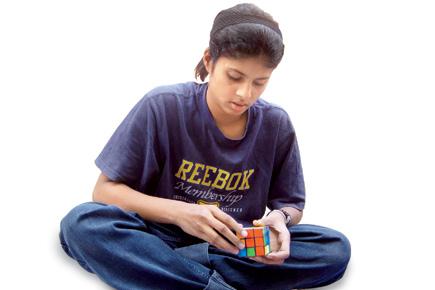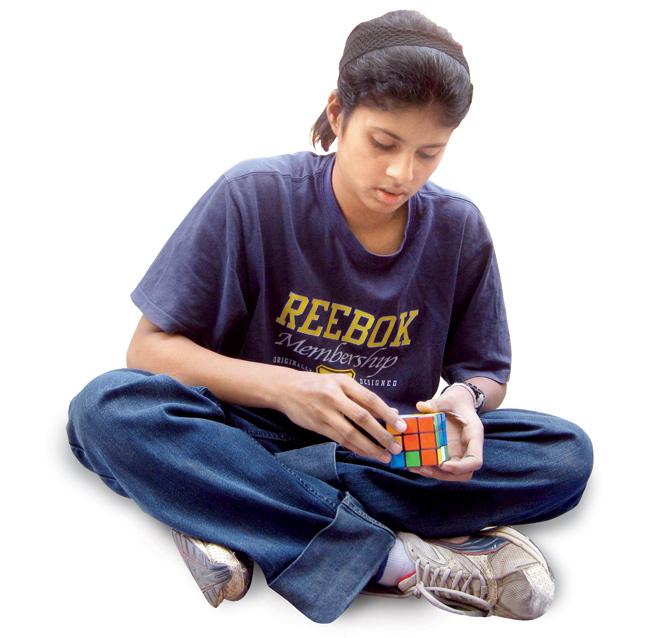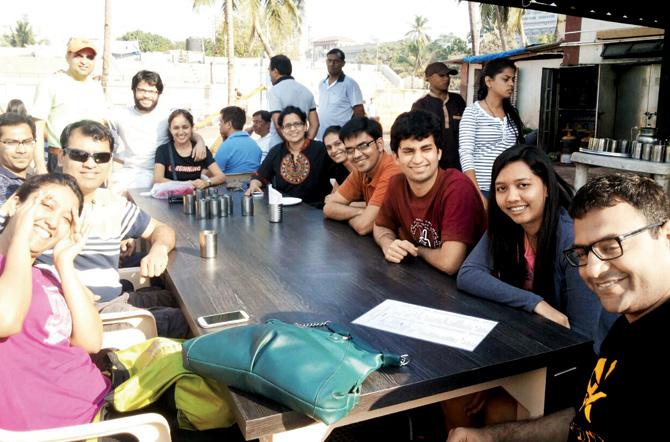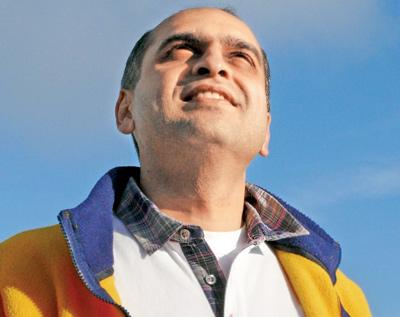What's the big deal about cracking a Mensa test? Turns out it is more than just bragging rights

Anushka Reuben
"You are so caring and soft-hearted that it doesn't seem to fit someone with a high IQ," was the casual compliment showered on Bela Raja 25 years ago. High IQ people, according to the person, were cold and hard. Raja, a child counsellor and special educator who lived in Bangalore then, was puzzled. Challenge accepted; Raja passed the Mensa test, hurtling into the league of high IQ individuals across the world.
ADVERTISEMENT

Anushka Reuben
Had she been younger, Raja would have had the paparazzi hot at her heels as in the case of Kashmea Wahi. Mumbai-born British national, 11-year-old Wahi is among the youngest in history to have earned a perfect score of 162 on a Mensa test last week. Even Albert Einstein and Stephen Hawking ranked lower.
Known to contain just the top two per cent of the world's population, Mensa has been called, often pejoratively, an elitism of a different kind.

Members of the Mensa Mumbai chapter meet for workshops and outings
"A big deal has been made of joining Mensa," says Nirav Sanghavi, who, as Mensa India's former national president gave it its current shape. "There are various types of intelligences, such as those identified by Howard Gardner, right from abstract to interpersonal skills, of which logical-mathematical is just one. The point of Mensa is not to judge, but find a sense of belonging," he continues. To him, personally, Mensa is an organisation for people with special needs.
Great expectations
Sanghavi became a Mensan in 1991, and once he took on administrative roles, received calls from to-be mothers who hoped that their children would become Mensans. "Abroad, Mensans are known to hide their identities since expectations run high. In India, however, we venerate an education system based on academics and marks, often equated (unjustly) with intelligence," he says. Scoring more than Einstein, he summarises, does not necessarily put you in that league.

Nirav Sanghavi
Founded by barrister Roland Berrill and scientist Dr Lancelot Ware in 1946, the worldwide organisation, which turns 70 this year, handpicks a chosen few based on standardised IQ tests. Mensa, which means a table, was founded on the principle that intelligence could be used for "the benefit of humanity". It is almost as idealistic as The Xavier's School for Gifted Youngsters in the X-Men series.
But, things aren't always cool for Mensans, just like the mutants from the comics series. Sanghavi routinely battles the stereotype of the Mensan as an overachieving, bespectacled, 'successful' geek. "The classic conundrum that Mensans face is that a high IQ need not translate into success," says Dr Rachita Narsaria, the president of the Mumbai chapter.
Take the case of 25-year-old Anushka Reuben, who works in the USA, travelling to cities such as New York to manage medical supplies in hospitals. Rather than topping her class, her IQ fuelled Rubik's Cube challenges. She went on to organise national level Rubik's Cube competitions (ever solved one blindfolded?). Becoming a Mensan after randomly giving the test one Sunday morning in 2010, she says, "Mensa tests your 'raw' intelligence, and not your 'learnt' intelligence." In India, the test is non-verbal to address various linguistic populations, and has been administered to privileged urban, rural, tribal and underprivileged children. The minimum age to attempt a Mensa test is 10 in India. If you pass, it most often means you are predisposed to imbibe quickly.
Fitting in
Narendra Kinger, a clinical psychologist and psychotherapist, administers IQ tests in order to ascertain a child's position in an intelligence spectrum ranging from dull to superior. Classic behavioural patterns among high IQ children, he observes, includes not being fast learners, but also making friends with those older to them, withdrawing into fantasy worlds and trying not to draw attention to themselves.
Pranav Khemka, a 11th standard student at a Santacruz-based international school, finds that his fellow Mensans are as curious a lot as he is. At their social events, he hangs out with a saxophonist and another who has discovered patterns occurring in local Mumbai train travellers. Sanghavi found solace with his "mental associations" in Mensa who got his jokes, while he made "friends of the heart" outside of the circle.
Members say that the while Mensa chapters in India program lesser than their counterparts abroad, they look forward to their socialising events, which, given the diversity, are great networking hotspots. Policies have changed. Not closed-door events anymore, members are encouraged to get along a plus one. And, what is the typical Mensan workshop like? Solving
a Rubik's Cube, a foodie discussion, kayaking off the Mumbai shoreline and treks. "The amount of 'normality' with Mensans is myth-busting. Mensans are a lot of fun," says Sanghavi.
Raja recently counselled a 21-year-old brought to her after his parents were informed that he was "unable to handle his course". Despite a plummeting self-esteem, it turned out that the boy was brilliant too. Noticing an all-too familiar spark, Raja suggested he try out a Mensa test. The boy responded: 'Do you think I am that good?'
Would she have said the same to an 11-year-old like Wahi? Not likely. "Telling a very young child that he/she has a high IQ could be seriously detrimental since there are expectations placed on the child as well as the pressure of performance instinctively felt by the child who may not be emotionally equipped to handle all this well," she says.
The fear of taking a test, and the fear of failure, is the biggest challenge of becoming a Mensan. "I know IITians and finance experts who have failed the Mensa. But, it is our responsibility to tell them it is not the end of the world," says Sanghavi, adding, "Though a high score means high intelligence, a low score does not mean low intelligence." Puzzling, but we believe it's good news.
 Subscribe today by clicking the link and stay updated with the latest news!" Click here!
Subscribe today by clicking the link and stay updated with the latest news!" Click here!








